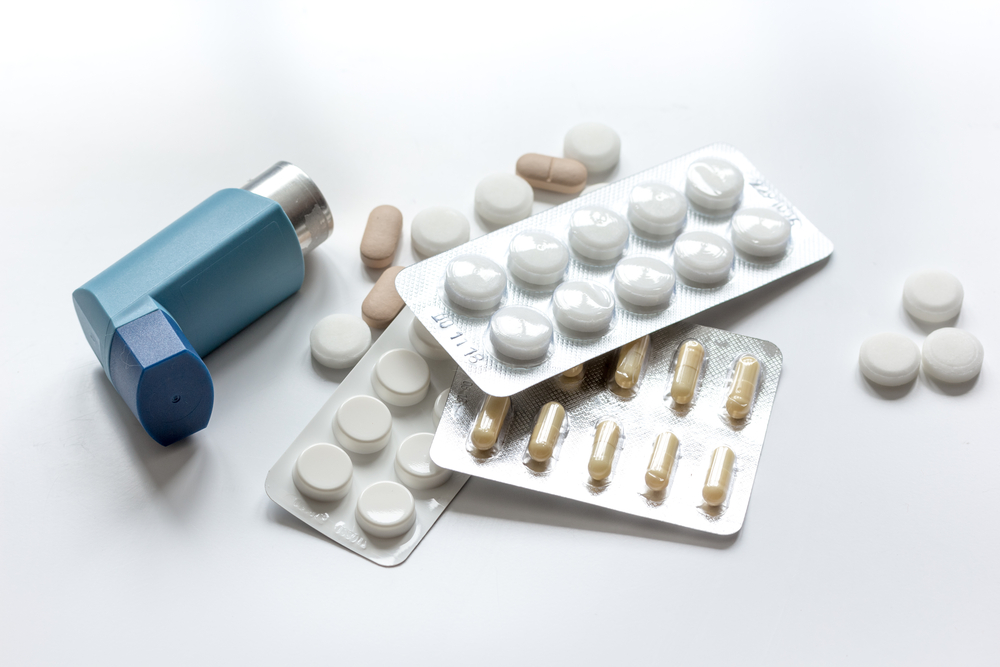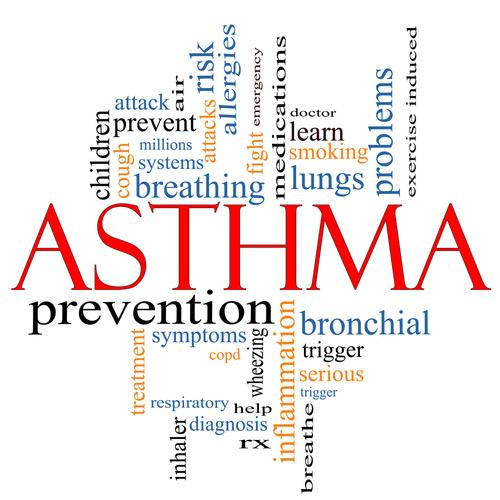Asthma medications play a key role in managing signs and symptoms of asthma such as shortness of breath, coughing, and wheezing.
Long-term control medications keep your asthma symptoms at bay. Whereas, quick relief or rescue medications treat asthma once they start. If your asthma is triggered by an allergic reaction, you may require consuming allergy medications in combination with an asthma medicine to help control your symptoms.

Also Read: Different Ways to Take Care of Eyelashes
You and your physician need to work together to determine the asthma medications that work best for you. Various factors like your age, symptoms, the severity of your condition, and side effects of the medication plays a significant role in choosing the type and dose of asthma medications you required. Because of the fact that every individual is different and asthma changes over time, you will need to work closely with your health care specialist to track your symptoms and make the necessary adjustment to your asthma medications as per need.
Medications for Asthma Cure
Long-term Asthma Control Medications:
These are meant to be taken regularly to control chronic symptoms and prevent asthma attacks. These medications are an important type of treatment and help most people with asthma. The category has the following types of medications for asthma care:
- Theophylline – This bronchodilator is available in the form of a pill for oral administration. It is meant to be taken daily to treat patients with mild asthma. It works by relaxing the airways and decrease the lungs response to irritants.
- Inhaled corticosteroids – These anti-inflammatory medications reduce swelling and tighten your airways. Your physician may recommend using these asthma medications for several days to weeks before they reach their maximum benefit. Some commonly used inhaled corticosteroids include mometasone, fluticasone, ciclesonide, budesonide, and beclomethasone.
- Long-acting beta agonists- or LABAs – These bronchodilator drugs opened up narrowed airways and reduce swelling in the airways. They are successful in treating moderate to severe asthma cases as well as prevent nighttime’s symptoms. LABAs are meant to be used on a regular basis along with inhaled corticosteroids. Although these medications are effective, they have associated with severe asthma attacks. Due to this reason, these should be used only in combination with an inhaled corticosteroid.
- Combination inhalers contain both a corticosteroid and a long-acting beta agonist – It is a combination inhaler that contains both a corticosteroid and a bronchodilator. It may increase your risk of having a severe asthma attack and should be used with extra care.
- Leukotriene modifiers – These drugs acts by blocking the effects of leukotrienes, immune system chemicals that cause asthma symptoms. These are helpful in preventing symptoms for up to 24 hours.
Quick-relief drugs:
These are fast acting drugs and can also be called as rescue drugs. These are used for short-term relief of symptoms. These fast acting drugs are useful in preventing and treating an asthma flare up. The class has the following types of drugs:
- Ipratropium – A short-acting bronchodilator is specially prescribed for conditions like emphysema or chronic bronchitis but is sometimes used to treat asthma attacks. It can be used as a combination drug or as an alternative to short-acting beta agonists.
- Short-acting beta-agonist such as albuterol – These medications are often used in treating asthma attacks and exercise-induced asthma. These are not meant to be used on a regular or daily basis. If you need to use your inhaler more often than your health care specialist recommends, your asthma is not under control, and you may be increasing your risk of a serious asthma flare-up.
- Oral and intravenous corticosteroids useful for serious asthma cases – These medications effectively treat severe asthma attacks. If taken for a longer period, they can cause troublesome adverse events and more serious adverse effects. The adverse effects may include thinning of bones, decreased resistance to infection, cataracts, muscle weakness, reduced growth in children, and high blood pressure.
Also Read: A Man’s Guide to Skin Care
Medication for allergy induced Asthma:
These can be consumed on a regular basis or as per requirement to reduce your body’s sensitivity to a particular allergy-causing substance called an allergen. Drugs that focus on treating allergy triggers include Allergy shots, Omalizumab, and allergy medications.




